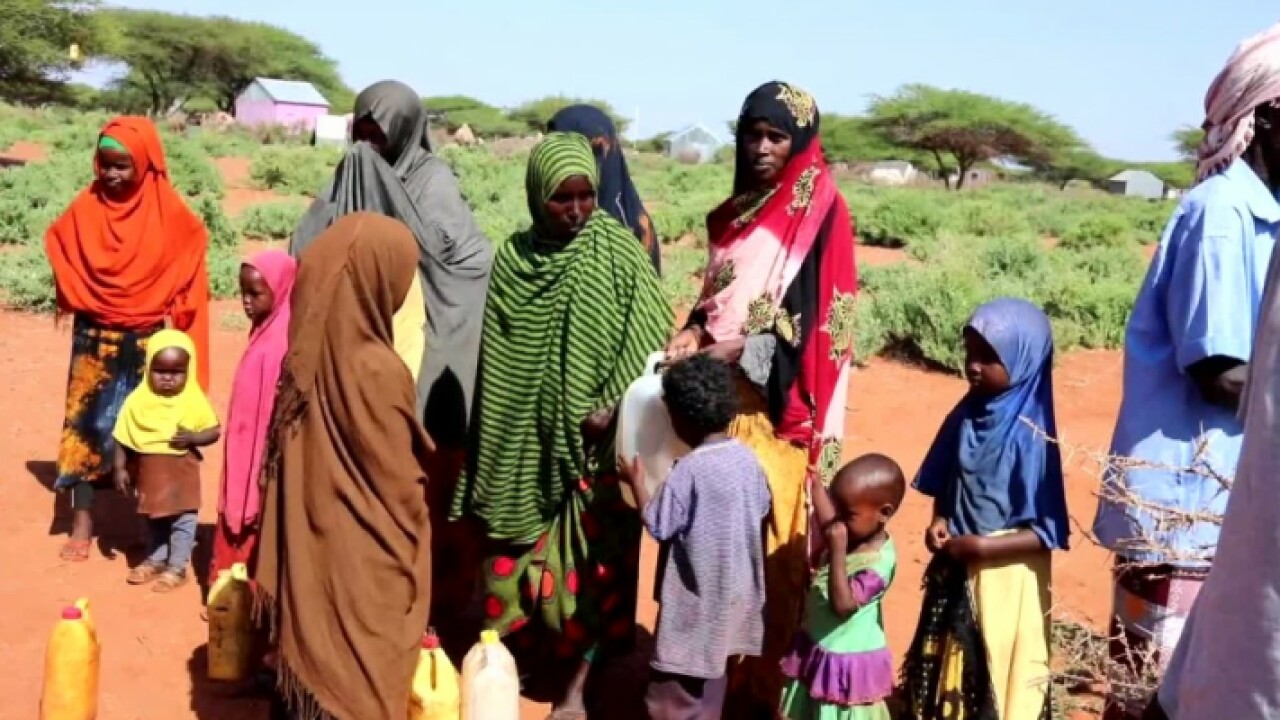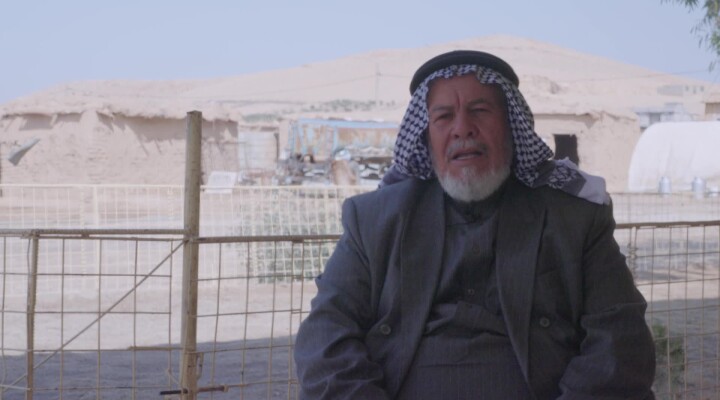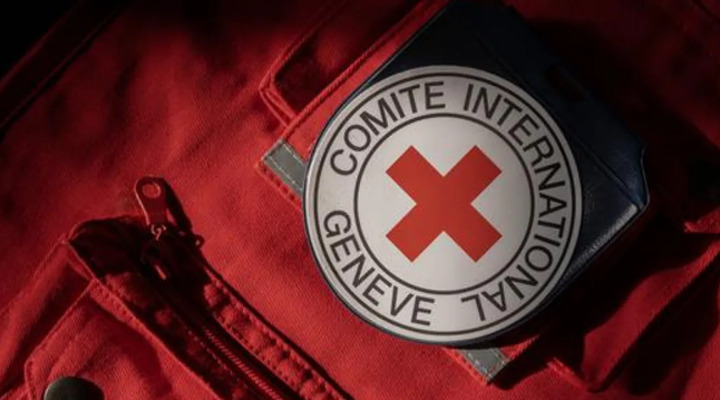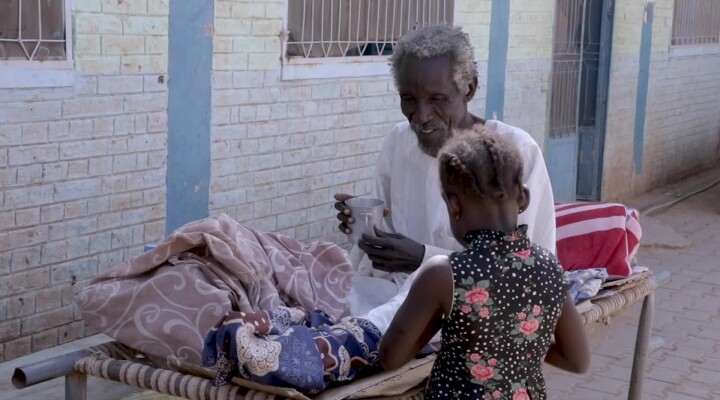Somalia: the compound impact of drought and conflict pushes people to the brink

This is a modal window.
More than 300,000 people have been affected by the worsening drought in Somalia’s Galgaduud region. Last month the Federal Government declared a state of emergency, as thousands leave their homes in search of food, water and pasture. In addition to the worsening drought, Guriel, a town of some 100,000 inhabitants in central Galgaduud, has seen an intensification of conflict. At the end of October, heavy fighting broke out between Somali National Army and Ahlu Sunnah Wal Jama’a group, killing dozens and forcing some 100,000 people to flee to the neighboring villages.
“This drought is more severe than the ones I used to see. The clashes have forced people to run away and become displaced. The drought and lack of rainfall has also caused displacement. These things have all come at once,” said Hashim, a 50 year old resident of Guriel.
Intense shelling damaged several buildings in Guriel, including its main hospital. The Kulmiye Community hospital, the second largest in town, was destroyed in a fire. Kulmiye hospital was a referral hospital that offered outpatient, inpatient, maternity and immunization services to people from surrounding villages within the range of over 100 km. “This morning, a number of people arrived at the hospital thinking it still exists. They had not heard the news,” said Dr. Ali Omar Tarabi - Chairman, Kulmiye Hospital Board. The pressure on the remaining health facilities has considerably increased.
Hundreds of thousands of people are staying in makeshift settlements on the outskirts of Guriel town. Some of them were displaced by the recent fighting, while others came to the area seeking pasture, as drought became more severe. All the displaced people live in extremely difficult conditions, lacking access to the essential services, like food, water and healthcare. “To respond to these needs, we provided water trucking to displaced people in 17 villages”, said Mohamed Sheikh Ahmed, Head of ICRC office in Galmudug. “Together with the Somali Red Crescent Society, we deployed a mobile health team that is providing essential health care services to six villages”.
Life is slowly returning to Guriel, but many small businesses remain closed and it will take time and effort to repair the damage, especially while the region is grappling with the consequences of the drought.
ICRC in Somalia – KEY FACTS
- A mobile health clinic consisting of 2 nurses, 2 health promoters, a vaccinator and a pharmacy assistant run by the Somali Red Crescent Society (SRCS) is providing health care services to four villages and two displacement camps in Galgaduud region.
- Over 39,000 people received access to water through rehabilitation of 9 boreholes
- The ICRC has been delivering 90 liters of water per day to some 6,600 for four weeks, as part of its emergency response.
- 20 water tanks have been delivered to 17 affected villages in Guriel.
- Over 70,000 people affected by the drought received cash grants in 17 villages in Galmudug region.
For further information, please contact:
Alyona Synenko (English), ICRC Nairobi, Tel.: +254 716 987 265, asynenko@icrc.org
Anisa Hussein (English/Somali), ICRC Somalia, Tel; +254 708 797 750, anisah@icrc.org
Mohamed Sheikh Ahmed (English/Somali), ICRC Somalia, Tel: +252 612780777 mahmedabdulle@icrc.org
SHOTLIST
Location: Guriel, Somalia
Length: 10.27
Format: mp4
Camera: Ismail Taxta
Date: 25/11/2021
Copyright: ICRC access all
On Screen Credit: ICRC written, or logo attached to story
00.00-00.07
Street shot of Guriel Town
00.08-00:12
Wide shot of the damaged Kulmiye hospital signboard
00.13-00.37
Various exterior shots of damaged Kulmiye hospital
00.38-01.07
Various interior shots of damaged Kulmiye hospital
01.08-02.13
Interview: Dr. Ali Omar Tarabi - Chairman, Kulmiye Hospital Board
“ The hospital had a lot of patients admitted. At least 47 people admitted as a result of the fighting. We did a lot of hard work to get the patients out of the hospital. After we saw no one was protecting the hospital we decided to leave. When we were in the emergency handling wounded patients, that's when the disaster happened and the entire hospital got burnt. This was a hospital that catered to everyone. This morning, a number of people arrived at the hospital thinking it still exists. They had not heard the news. So the people will suffer a lot. They will no longer receive the care and this will difficult for them. The needs are many and the people don't have a place where they can get treatment.”
02.14-02.32
Various shots of Somalia Red Crescent mobile health clinic in Girijir.
02.33-02.43
Various shots patients being treated at the Somalia Red Crescent mobile health clinic in Girijir.
02.44-03.31
Interview: Mohamed Sheikh Ahmed - Head of office Galmudug, ICRC
“The recent clashes that occurred in Guriel have had a big impact on the people of Guriel. More than 20,000 families were displaced. Health facilities including key referral hospitals were either destroyed or partially damaged. Also key water infrastructure was damaged. As a result, the displaced people desperately needed water, food, shelter and health services.”
03.32-03.52
Various shots of patients being treated at the Somalia Red Crescent mobile health clinic in Girijir.
03.53-04.20
Various shots of children being treated at the Somalia Red Crescent mobile health clinic in Girijir.
04.21-05.12
Interview: Mohamed Sheikh Ahmed - Head of office Galmudug, ICRC
“Together with Somali Red Crescent Society, we deployed a mobile health team that is providing essential health care services to 6 villages. To provide essential health care to communities in those areas especially vulnerable women and young children. We also just completed the registration of more than 12,000 households from the displaced people. This is to provide them with unconditional cash transfers for them to have the opportunity to buy food for their families.”
05.13-05.19
Shot of Guriel town
05.20-05.43
Various shots of community members waiting for water.
05.44-06.53
Interview: Hashim - Resident, Guriel
“At 50 years of age, I have seen many droughts from before. Before, the droughts were severe and used to last for one to two years. The impact of these droughts has brought reoccurrence of many other droughts. The droughts reoccur in Somalia. As it is with this current drought, and the additional clashes has forced people to be displaced in two areas. This drought is more severe than the ones I used to see. The clashes have forced people to ran away and become displaced. The drought and lack of rainfall has also caused displacement. Thesethings have all come at once.”
06.54-07.20
Various shots of a damaged water tank in Guriel.
07.21-07.39
Various shots of a damaged generator in Guriel.
07.40-08.14
Interview: Hassan Rage - Resident, Guriel
“The little water you see there has been brought by the rain. The two motors are broken and damaged and we don't use them. We cannot use the water to make tea or food and even washing clothes. We have never seen this lack of water before. We had two motors before, which didn't bring in much water. One broke down. The other one is not functioning. It was damaged from before.”
08.15-08.33
Various shots of ICRC providing water trucking services
08.34-08.52
Various shots of residents collecting water
08.53-09.21
Various shots of livestock being provided with water
09.22-09.43
Interview: Mohamed Sheikh Ahmed - Head of office Galmudug, ICRC
“To respond to this needs, we provided up to now water through water trucking to the displaced people in 17 villages. Also, people who lived in these areas have been affected by the clashes and also drought affected communities.”
09.44-10.08
Various shots of a resident using water in her household
10.09-10.27
Interview: Fadumo Mohamed Coolad - Resident, Guriel
“We were suffering but we received water. May God bless them. We drink the water everyday but it is still not enough. We would want to have more. Hunger is still there. We are living in bad times.”


